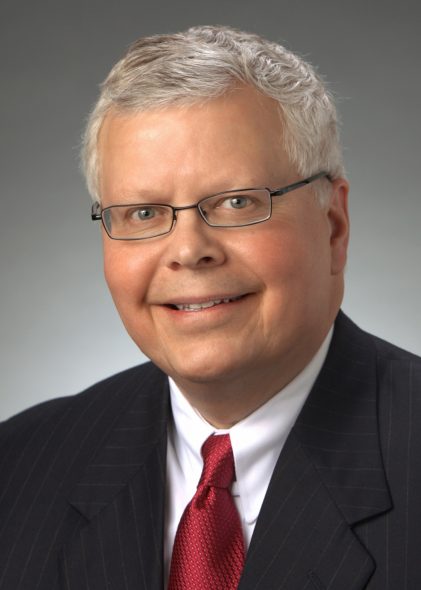UW System President Suggests Less Liberal Arts for Poorer Students
Rothman backs such program cuts at campuses with more low-income students.
UW System President Jay Rothman suggested in an email to campus chancellors that they should consider cutting liberal arts programs at schools that serve a large number of low income students, the UW-Madison student newspaper the Daily Cardinal reported last week.
In the email, in which Rothman lists a number of suggestions campus leaders can make to deal with declining revenues and stagnating state support, he said campuses should seek a long-term path “to return to financial stability.”
“Consider shifting away from liberal arts programs to programs that are more career specific, particularly if the institution serves a large number of low-income students,” Rothman wrote.
The email, which Rothman sent in early September, was revealed after a number of cuts have been made across the UW System, including to schools that predominantly serve low income students. This fall, the system announced that it would be shutting down in-person instruction at two of its two-year campuses in Fond du Lac and Washington counties. That announcement came after the two-year campus in Richland County shut down this spring.
“Make the ‘painful’ cuts and adjustments at one time and then move on,” Rothman said in another suggestion.
On the social media platform X (formerly Twitter) Rothman denied that he was pushing campuses to cut liberal arts programs and attacked the Daily Cardinal’s reporting, while criticizing the students at one of the schools he’s responsible for because they quoted him directly.
The Daily Cardinal story linked to the email in which Rothman suggested “shifting away from liberal arts programs” and quoted directly from its contents.
UW System President suggests universities with high numbers of low income students should ‘shift away’ from liberal arts was originally published by the Wisconsin Examiner.























As a proud alum of UW Madison and The Daily Cardinal: carry it on. Good for finding the e- mail and publishing it.
Rothmann should stop whining – this is a debate worth having but nor because a student newspaper quoted his own words.
So he is basically saying, fake news! Shameful!
Given the focus on/concern for low-income students and declining enrollments, an observation: the starting point for solving any problem is to accurately define it. There is an implicit assumption that the reason for declining enrolments is that college does not provide a solid career path for students, especially low-income students. Also implicit is the belief that the university should essentially perform the role of corporate training center.
A relevant contrary University of Wisconsin history lesson/case study. As a child of low-income, grade-school educated, immigrant parents and a first to (barely) graduate high school, I made my higher education “choice,” and went to college for three reasons: (1) Most important: I didn’t want to go to work at American Motors. (2) I could easily afford the almost free tuition, and (3) there was “open admissions,” i.e., they accepted everyone, including dimwits like me.
As a “groundbreaker,” I had zero “family support” for going to college and, like most kids my age, not a clue as to what I wanted to do “in life.”
My “choice”: the only college on the face of the earth that would take me: UWM. $80/semester; affordable books; and, most important, extraordinary professors. It was a life-changing experience, easily the best school I have ever attended, and opened all kinds of doors, including fully government paid-for advanced degrees (thank God for the communist threat).
Now the big point: In today’s world, with today’s tuitions (more than 10 times what I paid) and costs, and the limited supports available, kids like me simply don’t go to college because, loans aside, going to the university is simply out of the question. In my time at UWM, the state accounted for some 90% of the university’s budget. Today that number is below 20%. Solve that problem and you can increase enrolments and may not have to turn the university into a corporate training center.